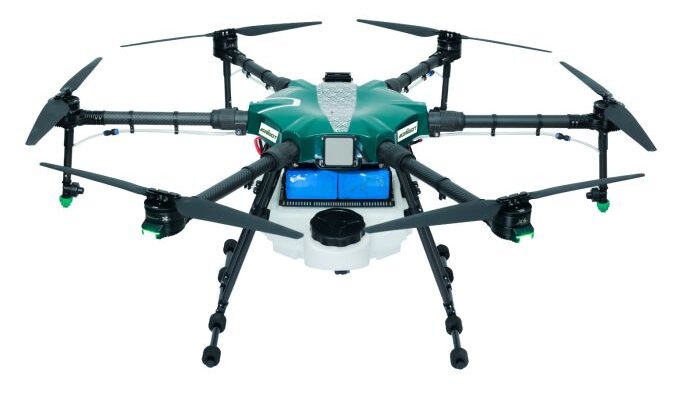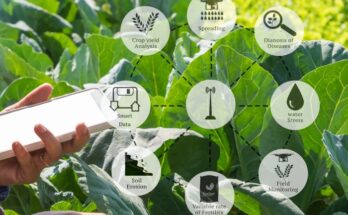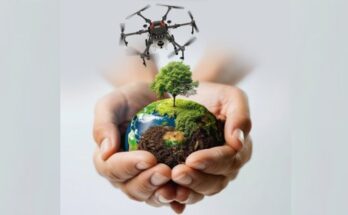Technological advancements have tremendously influenced practically every sector and agriculture is no stranger to it. Especially in the face of global concerns such as climate change and rising populations, technology serves as a reliable companion for the agriculture industry. Amongst other tech advancements, AI-enabled drones stand out as a game changer, providing long-term solutions to improve efficiency and environmental responsibility.
Apart from technological innovations transforming farming systems, biological fertilisers have emerged as a viable alternative to conventional agricultural methods. These fertilisers, which are environmentally benign, use microorganisms’ innate ability to improve soil fertility and stimulate plant growth. Together, sustainable farming methods and technological improvements not only solve existing problems in the farming system but also build a solid foundation for the agricultural sector’s long-term prosperity.
AI drones: Transforming agriculture sector
Agriculture has long been limited to conventional techniques, but thanks to technological breakthroughs, several novel innovations, like AI-enabled drones, have emerged, addressing both current and future challenges. Equipped with cameras and sensors, drones capture high-resolution aerial data on crop conditions, soil properties, water supply and pest infestations. By using this data-driven evaluation, farmers can optimise their farming operations by remotely monitoring crop health, timely detection of pests and evaluating nutrient levels.
You may also like to read: Marut Drones and PJTSAU’s direct seeding drone receives ‘world’s first’ utility patent
Moreover, AI-enabled drones facilitate routine surveillance, enabling prompt detection of certain plant diseases, nutritional deficits and pest infestations. Consequently, this enables farmers to adopt sustainable practices like integrating biopesticide, and it also reduces the demand for broad-spectrum insecticides by allowing farmers to apply prompt and targeted pest control treatments.
Apart from gathering data on crop health, these drones can be used to create appropriate plans for the accurate application of herbicides, fertilisers, and irrigation. Further, drones can carry out these plans precisely, guaranteeing the appropriate distribution of resources and reducing expenses and environmental impact. In tandem with AI drones, the use of biological fertilisers and biological pesticides is becoming more and more popular as a sustainable substitute for conventional chemical fertilisers and pesticides that improve plant health in general.
Unveiling the crucial function of biological fertilisers
Biological fertilisers are becoming more and more prevalent in modern agriculture, as a means of supporting healthier crops. From being viewed as a chemical fertiliser supplement to their current status as nutritional support, biological fertilisers have come a long way. They are frequently recognised as a renewable source of plant nutrients that enhance soil health and they have become an essential component in integrated crop and soil management.
You may also like to read: SOLASTA Bio takes green bioinsecticides closer to market with successful field trials
In addition to increasing agricultural output and promoting plant growth, biological fertilisers are environment-friendly because they are free of any dangerous chemicals. It increases crop production by enriching the soil with beneficial microorganisms and nutrients that are essential for plant growth. In addition, phosphate solubilising bacteria, symbiotic nitrogen fixers, and symbiotic bacteria are natural, organic, and chemical-free sources of biological fertilisers. Consequently, since these fertilisers do not contaminate soil, air, or water, they become safer for both the environment and people.
Redefining the future of agriculture
The emergence of technological innovations, such as drones with artificial intelligence capabilities and eco-friendly substitutes like biological fertilisers, has proven to be a game-changer in the agricultural industry. Adopting these innovations will be crucial in addressing global concerns and ushering in a novel era of robust and efficient farming practices.
(Harsh Vardhan Bhagchandka is the president of IPL Biologicals Ltd. Views expressed in the article are author’s own.)





